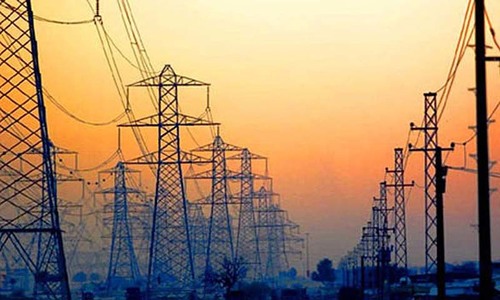LAHORE: Despite hectic efforts and claims by the Ministry of Water and Power, the power sector receivables have increased by a whopping Rs30 billion in the first two months of this fiscal year.
According to the data compiled by Pakistan Electric Power Company (Pepco), the sectoral receivables, which stood at a staggering Rs633bn at the end of June this year, swelled to Rs663bn by the end of August.
The private (or individual) default made the bulk of addition. Out of total addition of Rs30bn, Rs26.39bn (86pc) came from it in these months.
Also read-Editorial: Power sector debt
According to the details, the federal department have added Rs3 billion to the tally.
In June, they owed Rs5.33bn, which jumped to Rs8.25bn in next two months. The AJK government also contributed its share by increasing its default from Rs53.12bn to Rs56.67bn. The other provincial governments saw their share of default increasing by almost Rs2.5bn — from Rs97.08bn to Rs99.51bn.
Similarly, Fata’s default increased by just under Rs2bn and the K-Electric, which has traditionally been prime culprit, saw its default decreasing from Rs43bn in June to Rs38bn by August. During these two months, the sector issued bills of Rs215bn, but recovered only Rs185bn.
According to a former head of Pepco, “The issue is very simple; out of Rs663bn default, over Rs250bn belongs to the federal and provincial governments. Why the governments are not paying their bills? It is not to justify the private default, but only to underline official carelessness as well.”
In June 2013, the prime minister ordered a full-fledged campaign to recover dues and all those defaulting connections, regardless of their official status, should be disconnected. Some of them actually were disconnected. But then the ministry lost political and administrative steam and default started accumulating even faster.
Only the government of Sindh is a defaulter of Rs70bn and the AJK another Rs56bn. If the federal government is helpless in recovering dues even from its federating units, one cannot say how it plans to sustain the sector, he concluded.
“The situation is equally bad on the private front as well,” explains a former chief of National Transmission and Despatch Company (NTDC). Out of total default of Rs663bn, Rs459bn belongs to private individuals, including subsidies (like agriculture tubewells) on different heads. That makes around 69pc of the total default.
The government is unable to recover this 69pc from the people for whatever reason and is unwilling to pay 31 per cent due to it. No wonder, in these circumstances, it is only left with one option; keep increasing rates and keep adding surcharges to the bills and that is precisely what this government has been doing for the last two years, without realising that there is a limit to this exercise, both financially and politically, he concluded.
Published in Dawn, October 15th, 2015
On a mobile phone? Get the Dawn Mobile App: Apple Store | Google Play














































